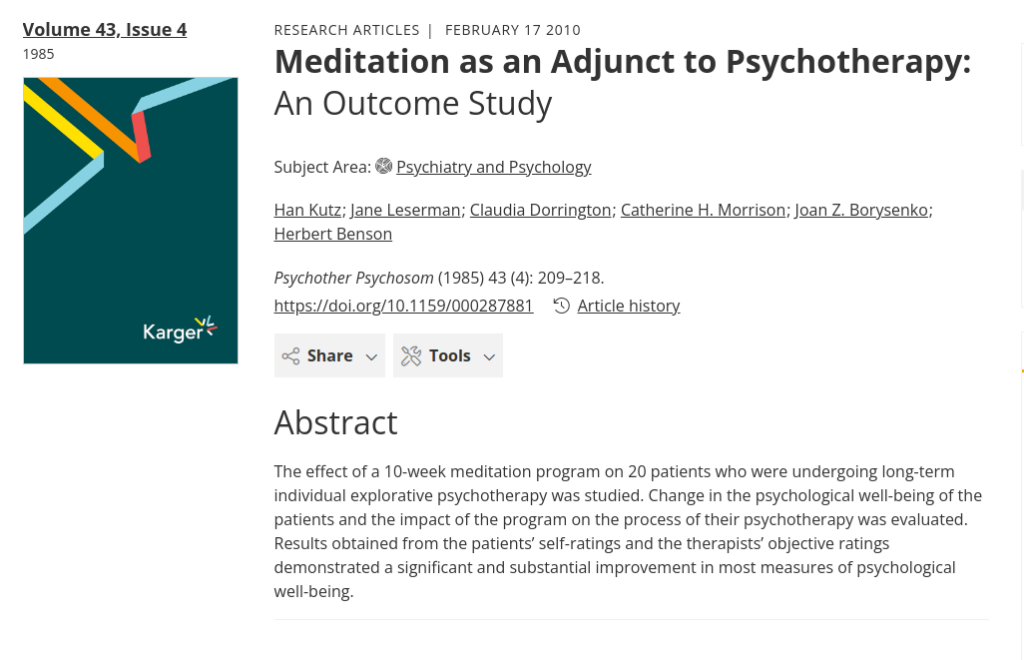Publication
Psychotherapy and Psychosomatics
43 (4): 209-218
Abstract
The effect of a 10-week meditation program on 20 patients who were undergoing long-term individual explorative psychotherapy was studied. Change in the psychological well-being of the patients and the impact of the program on the process of their psychotherapy was evaluated. Results obtained from the patients’ self-ratings and the therapists’ objective ratings demonstrated a significant and substantial improvement in most measures of psychological well-being.
Web and Email Links
Related Listings
Journal
Psychiatry Research: Neuroimaging
Therapeutic interventions that incorporate training in mindfulness meditation have become increasingly popular, but to date, little is known about neural mechanisms associated with these interventions. Mindfulness-Based Stress Reduction (MBSR), one of the most widely used mindfulness training programs, has been reported to produce positive effects on psychological well-being and to ameliorate symptoms of a number of disorders. Here, we report a controlled longitudinal study to investi […]
Journal
Behavior Modification
Sleep latency changes following behavioral interventions for sleep-onset insomnia are only moderate because the majority of insomniacs do not achieve good sleeper status at posttreatment. This study evaluated the efficacy of a multifactor behavioral intervention consisting of stimulus control and relaxation-response training (n = 10) compared to stimulus control alone (n = 10) for sleep-onset insomnia. Only the multifactor subjects' mean posttest sleep latency fell within the good sle […]
Journal
The International Journal of Psychiatry in Medicine
It is hypothesized that situations requiring continuous behavioral adjustment activate an integrated, hypothalamic response, the emergency reaction. The frequent elicitation of the physiologic changes associated with the emergency reaction has been implicated in the development of diseases such as hypertension. Prevention and treatment of these diseases may be through the use of the relaxation response, an integrated hypothalamic response whose physiologic changes appear to be the cou […]

